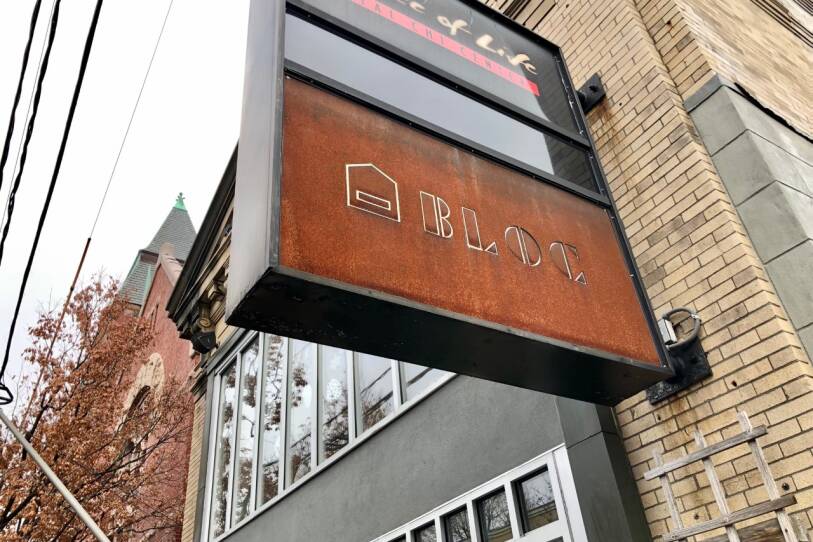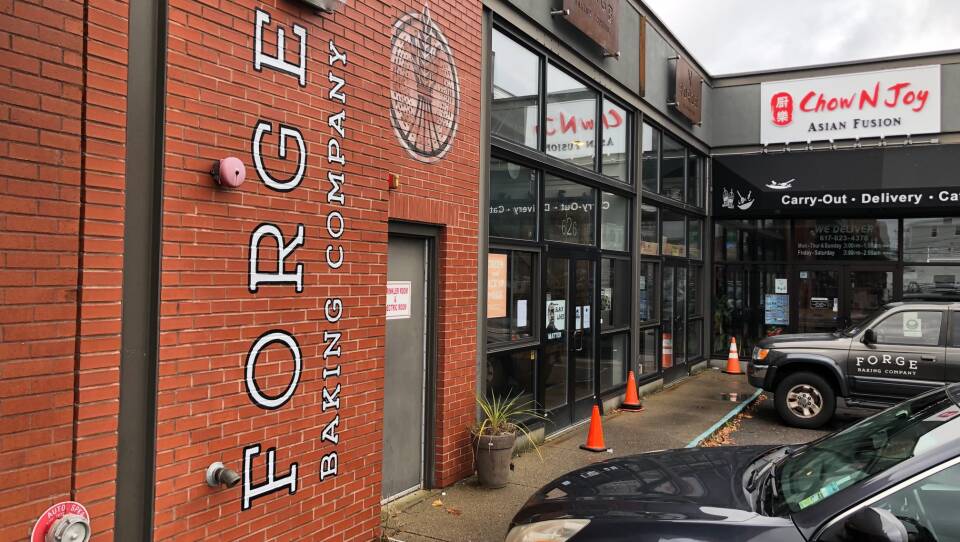Employees at three Somerville coffee shops began steps to form a union on Monday, joining a growing labor movement of cafe workers across the Greater Boston area.
An organizing committee of 11 employees at Diesel Café, Bloc Café and Forge Baking Company — which all share the same management team — requested voluntary recognition of their organizing effort with the New England Joint Board UNITE HERE union in a letter sent to management Monday morning. Employees are seeking structural changes, including a framework for wage increases.
“Side by side with you, we have worked tirelessly over the past year to keep our cafes afloat amidst the seismic changes wrought by the pandemic,” employees wrote in a letter to owners Tucker Lewis and Jennifer Park and Chief Operating Officer Court Verhaalen. “Looking to the future, we urge you to see that unionization is our company’s best option and greatest hope to achieve sustainability, establish stability, and engage our entire community with care and compassion.”
Management can recognize the union voluntarily or push the effort to a vote conducted by the National Labor Relations Board. Park did not say whether management will immediately recognize the union, but said that owners are “doing our best to dive in and learn the process and terminology as quickly as possible,” and are “committed to making our workplace the best place it can be for our staff,” in an email to GBH News on Monday. When asked about increasing transparency around raises and promotions, “we are 100% behind that!” Park wrote.
In June, workers at Pavement Coffeehouse, a local chain with locations around Greater Boston, launched a successful flagship campaign to become the first unionized cafe in Massachusetts. Darwin’s, a Cambridge cafe with four locations, followed suit in September.
“Seeing Pavement and Darwin’s happen made it seem like it could happen here, like it was possible,” said Will Lathrop, a 27-year-old shift leader and floor manager at Forge. “We're in this city where unionization is happening all around us, and I think this big-scale accretion of worker power is going to happen gradually. We thought we should, you know, add on with our little chip.”
The organizing committee, representing roughly 50 employees across the three shops, hopes that a union will create more opportunities to request sick time or time off, create a structure for raises and promotions, and increase communication and respect between management and employees. Employees start at the hourly minimum wage of $13.50, but no clear structure for raises or employee growth exists, according to Lathrop, who now makes $15 per hour after two years of employment.

Employees in the organizing committee have already begun collecting union authorization cards from employees, according to UNITE HERE political director and union representative Mitch Fallon, who said the union would not be moving forward without “full confidence that an overwhelming majority of their coworkers” are in favor of unionizing.
The two previous unionization efforts at Pavement and Darwin's, also led by UNITE HERE, revealed “major themes of structure and standards” across all shops, according to Fallon.
“Now that we're on to this third set of coffee shops, we're really starting to look at what the industry standard currently is and what it should be, and currently it's not the best,” Fallon said. “There's a lot of opportunity there to make the lives of the people doing this very skilled work a lot better. We want to make the standards such that this is a real field of work that you can look at as a career, making sure that people are treated properly and that you can do more than just survive in this line of work.”
The median tenure in food service jobs nationwide is about two years — roughly half the tenure of workers across all industries. And employment in food service and accommodations still lags behind pre-pandemic levels in Massachusetts, according to the Executive Office of Labor and Workforce Development.
“Working through the whole pandemic, I realized that the work we do, the bottom of the line, is what made it possible for our businesses to survive, so it’s impossible not to feel that your value as a worker is really great and that you do have a lot of power,” Lathrop said. “When I saw my friends leave because they were really tired and get replaced by people who quickly began to feel the same way, I realized that if I also quit just because I was tired, the people who replaced me would feel the same way. I’m doing this for them, too.”
Mia Kundert, a 24-year-old who has worked the past nine months at Forge's bakery and shop, said the pandemic exacerbated difficult working conditions that employees had accepted as a new normal — until other coffee shops began their own unionization efforts.
“The idea of a union didn’t really occur to us up until that point, but it makes a lot of sense, especially in the service industry,” Kundert said. “We have gone through constant changes to keep customers happy and safe, and we don’t really have any support system. The union provides that kind of structure that we’re looking for.”
High turnover rates and difficult working conditions, previously accepted as part of food service jobs, don’t have to represent the industry standard, Kundert said.
“It's easy to think of this as a temporary job, or a job that’s not worth unionizing,” Kundert said, "but I don’t think there’s any such thing as a job that’s not worth unionizing.”







